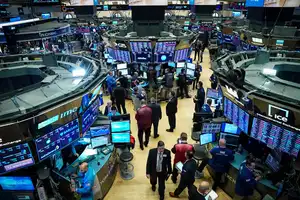The futures market attracts participants who have no vested interest in the actual goods being traded but are solely looking to speculate on price movements. In the past, futures markets were primarily used for fulfilling business purposes, but now they are open to the public for buying and selling contracts as they please, including speculators.
Allowing futures contracts to be traded on public markets increases liquidity and enhances price discovery, leading to narrower spreads and increased supply and demand. Restricting speculators’ participation could harm the market by reducing liquidity and making futures trading more difficult.
Ultimately, while those who wish to trade private futures contracts can still do so, public futures markets provide an opportunity for speculators to participate and profit from price fluctuations. The openness of these markets allows for broader participation and improved trading dynamics.
Futures Contracts are a Zero Sum Proposition
In the futures market, all trades have a winner and a loser, resulting in a zero-sum game. Unlike some securities like stocks that can keep rising in price over the long term, futures contracts have a limited duration and settle daily, where one party gains a certain amount of profit while the other experiences a corresponding loss.
Futures contracts are used for speculation, allowing individuals to buy or sell assets at agreed-upon prices. Trading skills play a crucial role in futures, as the timing of entering and exiting the market significantly impacts the outcome. Speculators often receive criticism for their influence on futures trading, but their success is attributed to their trading abilities and better timing.

Competing with other traders and speculators in the market requires careful timing and predicting price movements over time. While some participants may not profit immediately, speculators contribute to market liquidity, making it a test of skill to navigate and trade futures contracts effectively.
The Futures Market is All About Trading, Not Investing
Rolling over futures contracts is a common practice where traders transfer their positions to another contract with a different expiry date. This is often done between trades, not necessarily based on bullish or bearish sentiments for an extended period. While traders can technically invest long term by continuously rolling over contracts, most futures activity involves speculation, timing entries and exits to profit from price movements.
Even when trading futures contracts for delivery or taking delivery of a commodity at contract expiration, traders are still speculating on the proper timing of entering the contract. Both entry and exit points are essential aspects of trading, aiming to achieve a net profit from the overall activity.
Trading differs from investing in its focus on shorter-term market activity, emphasizing supply and demand dynamics. Investing, on the other hand, centers around long-term performance and growth potential of the underlying asset, with the expectation of a positive return over time. While both trading and investing involve supply and demand considerations, trading primarily concentrates on shorter-term movements.
How Traders Speculate on Price Movements with Futures
When speculating on securities, traders aim to predict price movements over a certain period of time, regardless of the futures contract’s duration, which can range from minutes to several months. Two main methods used for assessing a security’s outlook are fundamental analysis and technical analysis. Fundamental analysis looks at underlying factors driving supply and demand, while technical analysis measures trends in supply and demand directly from the contract’s trading activity.
Technical analysis is particularly popular in futures trading because patterns caused by trading activity can be self-fulfilling to some extent. While fundamental factors do influence the futures market, the known information is already priced in or in the process of being priced in. Therefore, futures speculators often rely on charting and technical analysis more than fundamental analysis, as it can provide a more accurate way to assess market reactions.
Debates exist on whether technical analysis always supersedes fundamental analysis, but in the futures market, technical analysis is crucial, especially for short and very short time frames, which are typical in futures trading. Successful futures speculation requires significant skill and understanding of the market dynamics, as traders aim to profit from short-term price movements.




